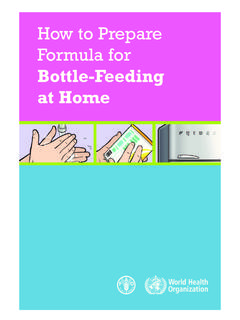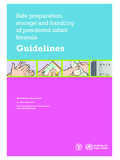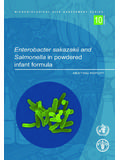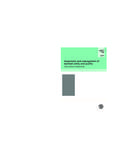Transcription of The International Code of Marketing of Breastmilk …
1 The International code of Marketing of Breastmilk substitutes The Member States of the world health Organisation: Affirming the right of every child and every pregnant and lactating woman to be adequately nourished as a means of attaining and maintaining health ;. Recognising that infant malnutrition is part of the wider problems of lack of education, poverty, and social injustice;. Recognising that the health of infants and young children cannot be isolated from the health and nutrition of women, their socio-economic status and their roles as mothers;. Conscious that breastfeeding is an unequalled way of providing ideal food for the healthy growth and development of infants; that it forms a unique biological and emotional basis for the health of both mother and child; that the anti-infective properties of breast milk help to protect infants against disease; and that there is an important relationship between breastfeeding and child spacing.
2 Recognising that the encouragement and protection of breastfeeding is an important part of the health , nutrition and other social measures required to promote healthy growth and development of infants and young children; and that breastfeeding is an important aspect of primary health care;. Considering that when mothers do not breastfeed, or only do so partially, there is a legitimate market for infant formula and for suitable ingredients from which to prepare it;. that all these products should accordingly be made accessible to those who need them through commercial or noncommercial distribution systems; and that they should not be marketed or distributed in ways that may interfere with the protection and promotion of breastfeeding.
3 Recognising further that inappropriate feeding practices lead to infant malnutrition, morbidity and mortality in all countries, and that improper practices in the Marketing of Breastmilk substitutes and related products can contribute to these major public health problems;. Convinced that it is important for infants to receive appropriate complementary foods, usually when the infant reaches four to six months of age, and that every effort should be made to use locally available foods; and convinced, nevertheless, that such complementary foods should not be used as Breastmilk substitutes .
4 Appreciating that there are a number of social and economic factors affecting breastfeeding, and that, accordingly, governments should develop social support systems to protect, facilitate and encourage it, and that they should create an environment that fosters breastfeeding, provides appropriate family and community support, and protects mothers from factors that inhibit breastfeeding;. Affirming that health care systems, and the health professionals and other health workers serving in them, have an essential role to play in guiding infant feeding practices, encouraging and facilitating breastfeeding, and providing objective and consistent advice to mothers and families about the superior value of breastfeeding, or, where needed, on the proper use of infant formula, whether manufactured industrially or home prepared.
5 Affirming further that educational systems and other social services should be involved in the protection and promotion of breastfeeding, and in the appropriate use of complementary foods;. Aware that families, communities, women's organisations and other nongovernmental organisations have a special role to play in the protection and promotion of breastfeeding and in ensuring the support needed by pregnant women and mothers of infants and young children, whether breastfeeding or not;. Affirming the need for governments, organisations of the United Nations system, nongovernmental organisations, experts in various related disciplines, consumer groups and industry to cooperate in activities aimed at the improvement of maternal, infant and young child health and nutrition.
6 Recognising that governments should undertake a variety of health , nutrition and other social measures to promote healthy growth and development of infants and young children, and that this code concerns only one aspect of these measures;. Considering that manufacturers and distributors of Breastmilk substitutes have an important and constructive role to play in relation to infant feeding, and in the promotion of the aim of this code and its proper implementation;. Affirming that governments are called upon to take action appropriate to their social and legislative framework and their overall development objectives to give effect to the principles and aim of this code , including the enactment of legislation, regulations or other suitable measures.
7 Believing that, in the light of the foregoing considerations, and in view of the vulnerability of infants in the early months of life and the risks involved in inappropriate feeding practices, including the unnecessary and improper use of Breastmilk substitutes , the Marketing of Breastmilk substitutes requires special treatment, which makes usual Marketing practices unsuitable for these products;. Therefore: The Member States hereby agree the following articles which are recommended as a basis for action. Article 1. Aim of the code The aim of this code is to contribute to the provision of safe and adequate nutrition for infants, by the protection and promotion of breastfeeding, and by ensuring the proper use of Breastmilk substitutes , when these are necessary, on the basis of adequate information and through appropriate Marketing and distribution.
8 Article 2. Scope of the code The code applies to the Marketing , and practices related thereto, of the following products: Breastmilk substitutes , including infant formula; other milk products, foods and beverages, including bottle-fed complementary foods, when marketed or otherwise represented to be suitable, with or without modification, for use as a partial or total replacement of breast-milk; feeding bottles and teats. It also applies to their quality and availability, and to information concerning their use. Article 3. Definitions For the purposes of this code : " Breastmilk substitute" means any food being marketed or otherwise represented as a partial or total replacement for breast milk, whether or not suitable for that purpose.
9 "Complementary food" means any food, whether manufactured or locally prepared, suitable as a complement to breast milk or to infant formula, when either becomes insufficient to satisfy the nutritional requirements of the infant. Such food is also commonly called "weaning food" or " Breastmilk supplement". "Container" means any form of packaging of products for sale as a normal retail unit, including wrappers. "Distributor" means a person, corporation or any other entity in the public or private sector engaged in the business (whether directly or indirectly) of Marketing at the wholesale or retail level a product within the scope of this code .
10 A "primary distributor". is a manufacturer's sales agent, representative, national distributor or broker. " health care system" means governmental, nongovernmental or private institutions or organisations engaged, directly or indirectly, in health care for mothers, infants and pregnant women; and nurseries or childcare institutions. It also includes health workers in private practice. For the purposes of this code , the health care system does not include pharmacies or other established sales outlets. " health worker" means a person working in a component of such a health care system, whether professional or nonprofessional, including voluntary, unpaid workers.





